
All-In All-Together Past Events
We know that the turbulence of our time and places can only be navigated safely when we are ‘all-in’ ‘all-together’ to find creative ways to deploy our resources, resist the ongoing assaults on vulnerable communities, and renew our bonds of connection that sustain us. We invite our growing network(s) of scholars, organizers, community leaders, funders, and students to join a series of virtual events that will provide time/space to deepen our conversations and support one another in our work to strengthen community and university responses to COVID and to racial justice movements. We are determined to reschedule the All-In: Co-Creating Knowledge for Justice Conference in-person as soon as allowable. #knowledge4justice
Virtual Events

Session 2 – May 7, 2021, 11:00-1:00pm (Pacific time)
Seizing the Pandemic Portal: Transforming Universities for Community Engaged Scholarship
Event Recording
Event Info
As Arundhati Roy so powerfully articulated early on in the crisis, pandemics provide us an opportunity to imagine the world anew. What does this mean for universities?
As we try to navigate the opportunities for ‘building back better’, how can we help expand the space for community engaged scholarship? How can we more effectively deploy our resources, to strengthen truly equitable community partnerships across all aspects of the research process? What does this mean for graduate students and early career faculty? For individual research centers? For university administrators, and cross-university networks?
Join us for a discussion on how we can seize the moment to help transform universities in the post-pandemic world, to be truly powerful partners in co-creating knowledge for justice.
Panelists:
Kal Alston, National Advisory Board Chair, Imagining America and Professor; Associate Dean for Academic Affairs, Syracuse University
Anibel Ferus Comelo, Director of Student Programming, UC Berkeley Labor Center
Claudia Maria Lopez, Assistant Professor of Sociology, California State University, Long Beach
RJ Taggueg Jr., Ph.D. Student and Mellon Public Scholar, UC Davis
Discussion Leaders:
Ana Antunes, Co-Chair, Urban Based Research Action Network and Assistant Professor, University of Utah
Chris Benner, Director of the Institute for Social Transformation and Everett Program, Professor of Environmental Studies and Sociology, UC Santa Cruz
Paige Bray, Co-Chair, Urban Based Research Action Network and Associate Professor, University of Hartford
Robin DeLugan, Director of the Resource Center for Community Engaged Scholarship and Associate Professor, UC Merced
Ronald David Glass, Director of the Center for Collaborative Research for an Equitable California and Professor of Philosophy of Education, UC Santa Cruz
Erica Kohl-Arenas, Faculty Director of Imagining America: Artists and Scholars in Public Life and Associate Professor, UC Davis
Stephanie Maroney, Mellon Public Scholars Program Manager, UC Davis
Steve McKay, Director of the Center for Labor Studies and Associate Professor, UC Santa Cruz
Mary Beth Pudup, Faculty Director and Associate Professor, Community Studies Program, UC Santa Cruz
Michael Rios, Vice Provost of Public Scholarship, Professor of Landscape Architecture & Environmental Design, UC Davis
Kim Tabari, Organizational Development Director, Equity Research Institute (ERI), University of Southern California
Cultural Inspiration:
Celina Su, Associate Professor, The Graduate Center, City University of New York
Fong Tran, Student support specialist at American River College, and Sacramento community organizer, youth advocate and spoken word artist
Timothy Eatman, Dean of the Honors Living-Learning Community, Rutgers University Newark
Call for Papers
Social Sciences Journal Special Issue: “New Trends in Community-Engaged Research: Co-Producing Knowledge for Justice.”
https://www.mdpi.com/journal/socsci/special_issues/community_research_policy
Special Issue Editors:
Steven McKay, University of California, Santa Cruz
Claudia Maria López, California State University, Long Beach
Key words: community-engaged research; critical public scholarship; urban; policy advocacy; community organizing; participatory action research; community-based research
There is an exciting resurgence in critical public scholarship: a push for universities to reach beyond their academic audiences and build stronger partnerships with community-based organizations and others to address pressing social issues (Burawoy 2006, Hartmann 2017). A particularly rich vein of engaged scholarship is the involvement of students and community partners as equal knowledge producers. The special issue brings together university scholars, community-based practitioners and researchers, and undergraduate and graduate students to highlight new trends in community-engaged research. We seek articles that center community-engaged work on justice-related issues such as: immigrant rights, housing, labor, education, and schools – magnifying the multiple assets and collective power that diverse scholars and community-based practitioners bring to collective approaches, particularly in growing urban spaces. The special issue will be split into two sections: articles about the process of conducting community-engaged scholarship – it’s theory, methods, epistemology, ethics; and articles drawing from community engaged research projects.
Submission timeline:
If you are interested in submitting a paper to the special issue, please submit an abstract, no longer than 500 words, to: smckay@ucsc.edu; Claudia.lopez2@csulb.edu by: Abstract deadline: June 15th, 2021
If invited, full paper deadline: September 15th, 2021 – detailed manuscript submission information to be sent upon abstract acceptance.
Expected publication of Special Issue: April 2022
All submissions will undergo standard procedures of double-blind peer review. For more information, please contact the special issue editors: smckay@ucsc.edu; Claudia.lopez2@csulb.edu

Session 1 – October 23, 2020, 11:00-1:00pm (Pacific time)
Community Based Research Navigating the Turbulent Time and Places of Political and Biological Pandemics
Event Recording
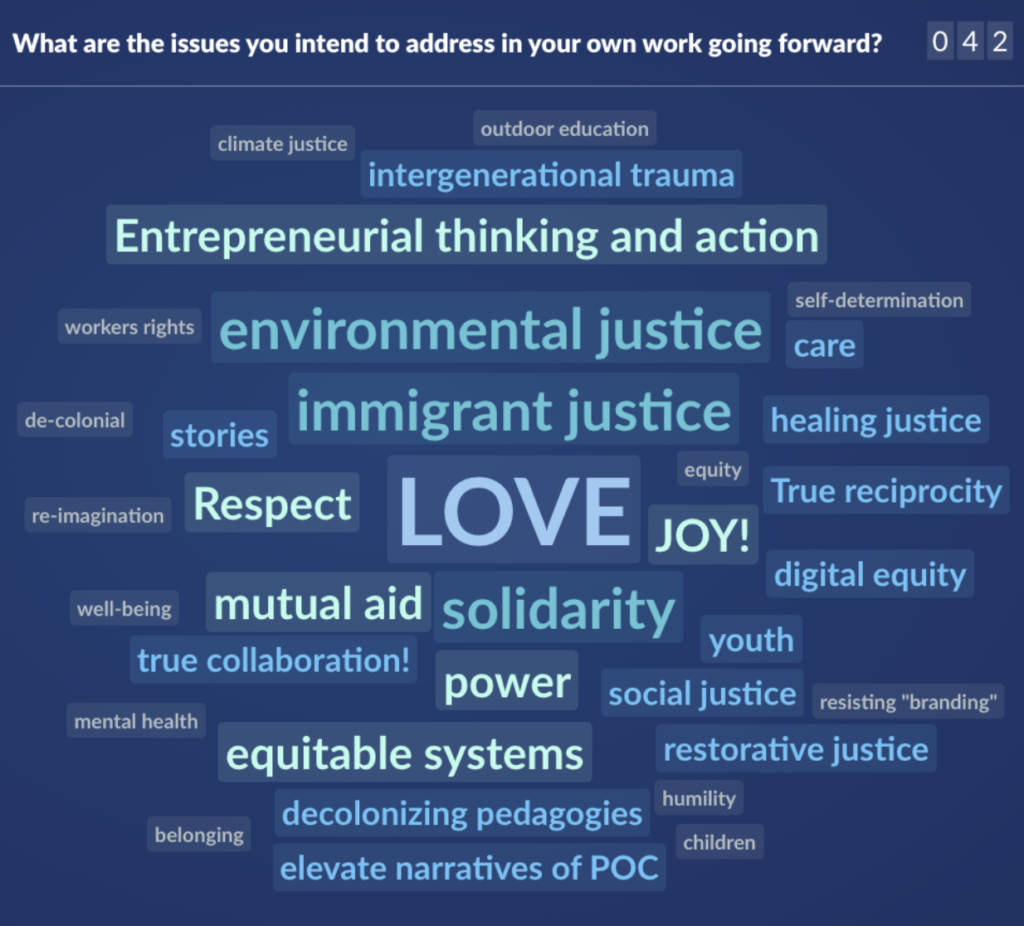
Event Info
The October 23rd event is a “flipped” style gathering, and registrants are asked to asynchronously view the short video ‘case’ presentations and provide input to the gathering hosts in advance so that our synchronous time together is maximized for fruitful dialogue and engagement for all participants. Subsequent virtual events will enable in-depth explorations of each of the initial ‘cases’ as well as other topics and cases.
We launch our series with an initial set of ‘cases’ meant to help us understand how community-university collaborations are evolving, what community partners need from universities in these times/spaces, what role research can play in the current struggles, what barriers partnerships are facing and what successes have they discovered.
We will explore a collaboration led by formerly incarcerated women, a partnership documenting the impacts of COVID on educational opportunity, a model for integrating university students in strategic research around the sense of connection and belonging of immigrants, and a higher education living/learning community designed for impactful partnerships.
Presenter Bios
Youth Voices: Univ. of Utah Neighborhood Partner Initiative
Dr. Ana Carolina Antunes is originally from Rio de Janeiro Brazil, but she has lived in Salt Lake City, UT since 2006. She holds a Ph.D. in Education from the Education, Culture & Society Department at the University of Utah and is an Assistant Professor (Lecturer) in the Division of Gender Studies in the same institution. Dr. Antunes develops participatory projects with young people of refugee and immigrant backgrounds in afterschool settings and it is interested in how racialized and gendered readings of bodies mediate relationships in the educational system.
Omar Bakari: My name is Omar. I am in 12th grade and I go to East high school. I am from Kenya. I want to go to the University of Utah and I am still deciding on a career path. Youth voices is like a family, it is a part of my community. It helps people feel safe and comfortable. We do a lot of research about certain topics like education, safety, and self-segregation within schools.
Ahmed Bana: I am Ahmed and I am currently a senior at Granger high school. I was born and raised in Utah. I love learning about history and also discovering new things. I hope to someday graduate from the university of utah and be an engineer. Youth voices is not just a program where you discuss ongoing issues and receive credit. It is about coming together and being comfortable knowing that you have a place where you can freely speak.
Jelani Atheman: I am a Student success advocate in the Office of student success and empowerment at the University of Utah. I am also a Facilitator in the Youth Voices Program. Youth Voices is a collection of youth from the west side community of Salt Lake City Utah, who engage in dialogues aimed at creating awareness about inequality to lead to change. These dialogues are conducted in a safe space (University Neighborhood partners , Hartland Center) and led by the youth with some guidance and directions from three facilitators. All of whom are educators and are heavily involved in and with the community.
Saia Langi: My name is Saia and I am a facilitator in the Youth Voices Program. I graduated with a bachelor’s degree from the University of Utah in Sociology and Ethnic studies. I have worked with my own community and youth learning for the past 10 years. I enjoy writing, particularly poetry. My goal is to be able to connect with youth in the community and create sustainable programs and pathways to educational and personal success. Coming from the West Side community of Glendale, it is important for residents that live there that need to be heard and included when doing research. Youth Voices is a place where youth from the community can come together and actively engage in meaningful research. It is a space where youth have a voice to express their opinions, thoughts, and emotions. What makes youth voices special are the students and the stories they have to share. What I love most is that students share their experiences, cultures, and languages with each other. This has created a better understanding not only for the students and mentors but for me as a facilitator as well.
Survivors Justice Project Research Collective
Michelle Fine is Professor of Critical Psychology, Urban Education, American Studies and Gender/Women’s Studies at the Graduate Center, CUNY. Engaged in critical participatory research for
educational, racial and gender justice, her most recent book, Just Research in Contentious Times is available from Teachers College Press.
Kathy Boudin is Co-Director/Co-Founder of the Center for Justice at Columbia University and is an adjunct lecturer at the Columbia School of Social Work. Her work at the CFJ focuses on ending mass incarceration and criminalization with particular focus on longtermers in prison and women. She is on the advisory board of the DVSJA project and a member of RAPP (Release Aging People in Prison).
Judith Clark, recently released after 38 years in prison, is currently working with Hour Children, which provides housing and resources for women getting out of prison, doing qualitative research about women’s experiences of reentry. She is on the advisory committee for the DVSJA project and a visiting scholar at the CUNY Graduate Center.
Michelle Daniel (Jones) is a third-year doctoral student in the American Studies program New York University who has published and presented her research and presented legislative testimony on a reentry alternative she created for long-term incarcerated people. She serves on advisory boards of the Lumina Foundation and the Urban Institute, is a founding member and chairwoman of the board of Constructing Our Future, 2017-18 Beyond the Bars fellow, a 2017-18 Research Fellow at the Charles Warren Center for Studies in American History at Harvard University, and a 2018-19 Ford Foundation Bearing Witness Fellow with Art for Justice, 2019 SOZE Right of Return Fellow, 2019 Code for America Fellow and 2019-2020 Mural Arts Fellow. As an artist, she co-authored the play, “The Duchess of Stringtown,” and curated an installation about stigma, “Point of Triangulation.”
Melissa Mahabir, LMSW, is a social worker with more than 15 years of practice experience. Much of her work has focused on counseling and advocating for women who have experienced domestic violence and criminal legal involvement.
Kate Mogulescu is an Associate Professor of Clinical Law at Brooklyn Law School, where she founded and runs the Criminal Defense & Advocacy Clinic. A public defender for nearly two decades, Kate focuses on the criminalization of survivors of domestic abuse and sexual exploitation.
Anisah Sabur-Mumin has been a policy advocate for the past 16 years, She coordinates and organizes the formerly incarcerated women via Coalition for Women Prisoners; She also advises several foundations on the impact of incarceration and building leaders of justice involved women along with being a former prison monitoring team members.
Monica Szlekovics is a graduate of Marymount Manhattan College Bedford Hills Campus. She earned a bachelor’s degree in Sociology in 2009 and then went on to work for the Program for nine years. In January of 2020, after twenty-three years of incarceration, she was granted clemency by Governor Cuomo, an extraordinary executive action which is rarely used. In doing so, Governor Cuomo recognized her conviction was the direct result of extreme gender based violence. She resides in Rochester, N.Y. and continues to support prison education programs and criminalized victims of gender based violence.
María Elena Torre is the Director of the Public Science Project and faculty member in Critical Social Psychology and Urban Education at the CUNY Graduate Center. A mama of a very cool 11 year old, she has conducted and written about critical participatory action research for the last 20 years and continues to be interested in how democratic methodologies, radical inclusion, and a praxis of solidarity can inform public science in support of justice movements.
Sharon White-Harrigan is the Executive Director of The Women’s Community Justice Association (WCJA), advisory member of the DVSJA working group, and co-creator of the Justice 4 Women Task Force.
Cheryl Wilkins is the co-founder and Associate Director of Columbia University’s Center for Justice (CFJ) and director of CFJ’s Women Transcending Program. Cheryl is the co-board chair of the Women’s Community Justice Association, and advisory board member of DVSJA and Justice 4 Women’s Task Force.
We Belong: UCSC & Community Action Board Partnership
Steve McKay is an associate professor of Sociology and the Director of the Center for Labor Studies at the University of California, Santa Cruz. He has helped develop a Community Initiated Student Engaged Research (CISER) program that has involved long-term partnerships with community organizations and over 350 UCSC undergraduates to produce action research on low wage work (Working for Dignity), the affordable housing crisis (No Place Like Home), and the experiences of mixed status immigrant families (We Belong).
MariaElena De La Garza, a native of Watsonville, has over 29 years of experience in community-based organizations and is currently the Executive Director of the Community Action Board of Santa Cruz County. CAB is a nonprofit devoted to eliminating poverty and creating social change. CAB operates 6 programs assisting close to 10,000 low-income people with emergency, sustaining/self-sufficiency services including: immigration and legal services, housing and rental assistance, job placement and organizing day workers and farmworkers. In 2018, MariaElena was awarded the prestigious University of California Santa Cruz Tony Hill Award for her work in social justice and community service.
Paulina Moreno is Project Director of the Thriving Immigrants Initiative, a county-wide alliance of organizations in Santa Cruz County that provide direct services to and advocate for immigrants, and the 2020 Census Project at Community Action Board of Santa Cruz County (CAB). In 2016, she was recognized as a “Community Hero” by the United Way of Santa Cruz County for her work with DACA youth through the Santa Cruz County Immigration Project at CAB.
Honors Living Learning Community
Timothy K. Eatman, Ph.D., an educational sociologist and publicly engaged scholar, serves as the inaugural dean of the Honors Living – Learning Community and Associate Professor of Urban Education at Rutgers University-Newark. From 2012 – 2017 his primary network of operation and leadership was with the national consortium Imagining America: Artists and Scholars in Public Life serving as Faculty Co-Director. Tim currently serves as national co-chair of the Urban Research Based Action and chair of the International Association for Research on Service Learning and Community Engagement board. In January 2019 Tim was elected to the board of directors of the Association of American Colleges and Universities (AAC&U). Pursuing a rigorous scholarly agenda, Tim publishes widely, serves on editorial boards and reviews for scholarly journals, publications and conferences. Tim is co-editor of The Cambridge Handbook of Service Learning and Community Engagement published in 2017. For more information see his webpages at http://timothykeatman.com.
Eboni F. Bugg is a young lady animated by a deep sense of love for others and her community. She is a first year student at Rutgers University–Newark and a 2020 Cohort member of the prestigious Honors Living Learning Community. HLLC is an innovative Honors model that focuses on identifying and developing positive change agents to fight against social injustices. Eboni is the founder of Created Unique which is a brand that encourages others to be their authentic unique selves. Created Unique aspires to be a signature brand that offers a major service component for young women of color. Its areas of programming include facilitating access to mentoring, counseling, leadership development and new positive growth experiences. Eboni dares girls “to dream, and dream big,…” but also to erase the stigmas and limits that limit girls to their current environment and social standing. She is completing a book of poetry book titled “The Evolution Of A Black Girl’s Identity,” which will be released in 2021. She is a ball full of fun and plans to always live by the motto live, laugh and love.
Mohamed A. Farge is currently a junior at Rutgers University Newark, a member of the 2018 Honors Living Learn Community (HLLC) cohort. His passion for social justice and the connectedness of the HLLC has allowed Mohamed to work on various projects, such as The Rally for the 94% back in 2018. This past summer, Mohamed had an opportunity to intern with the Royal Bank of Canada with their global markets sales and trading division where he will be returning next summer.
Project Videos
Please watch these four videos before the October 23rd meeting. Below each video is a question box. Please send us your questions and thoughts in advance of the event to assist us in planning the discussion.
Youth Voices: Challenges of Youth Work During the Pandemic
Youth and Youth mentors discuss the challenges and barriers of doing critical educational work in the midst of the COVID-19 pandemic. The video highlights how members of Youth Voices, a University of Utah Neighborhood Partner initiative, are navigating youth engagement through these turbulent times.
Survivors Justice Project Research Collective
A collaboration among Brooklyn Law School, The Public Science Project at the Graduate Center/CUNY and an Advisory Board of 8 women who have been formerly incarcerated, many criminalized survivors of domestic violence, we research, organize, advocate and litigate with women inside prison to advance their release.
We Belong: Collaboration for Community-Engaged Research and Immigrant Justice
UC Santa Cruz & Community Action Board Partnership.
PBS News Hour on Rethinking College: Honors Living Learning Community
At New Jersey’s Rutgers University, a new honors program for undergraduates is redefining academic excellence. Students accepted into the highly competitive Honors Living Learning Community (HLLC) study critical social issues and prove their commitment to becoming “change-makers.” While the program is small, its early outcomes have been promising.

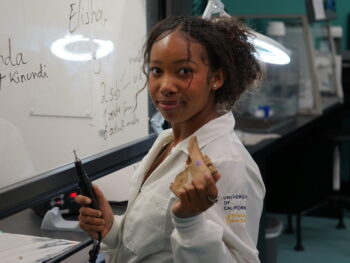
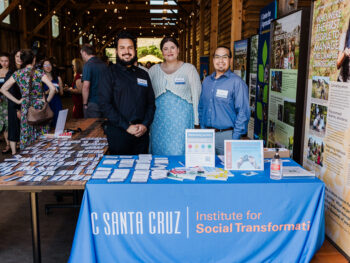
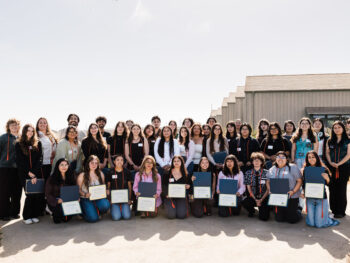
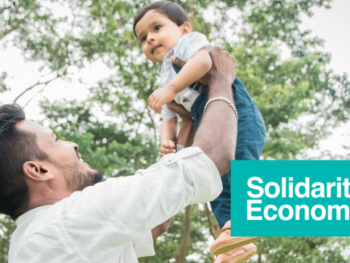
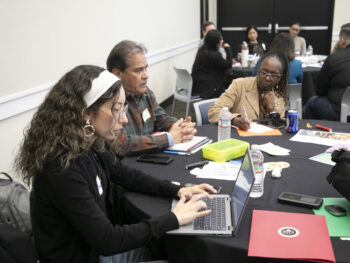
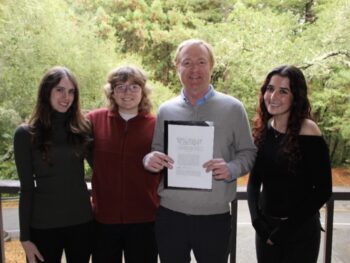
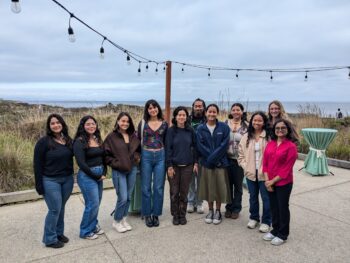
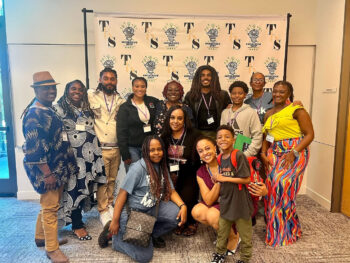
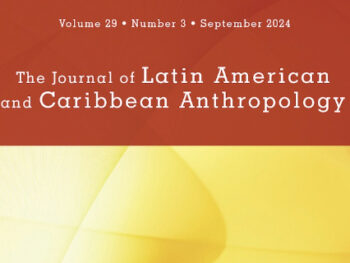
 The Impact of COVID-19 on Small Business Owners: Continued Losses and the Partial Rebound in May 2020
The Impact of COVID-19 on Small Business Owners: Continued Losses and the Partial Rebound in May 2020
